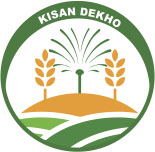
In agriculture, water is a vital resource that directly impacts crop yield and overall productivity. With the growing global demand for food and the increasing challenges posed by climate change, efficient water management has become more critical than ever. Sustainable water management not only conserves this precious resource but also ensures the long-term viability of farming operations. In this article, we explore the top five strategies for maximizing water efficiency in agriculture.
- Implementing Advanced Irrigation Systems
Traditional irrigation methods often lead to significant water wastage due to overwatering and evaporation. Advanced irrigation systems, such as drip irrigation and sprinkler systems, deliver water directly to the root zones of plants with precision. These systems reduce water usage by up to 50% compared to conventional methods, while also promoting healthier plant growth. Drip irrigation, in particular, minimizes water loss through evaporation and runoff, making it one of the most effective tools for sustainable water management in agriculture. - Adopting Soil Moisture Monitoring Technologies
Soil moisture monitoring is a powerful technique that helps farmers understand the exact water needs of their crops. By using sensors that measure soil moisture levels in real-time, farmers can optimize irrigation schedules and apply water only when necessary. This prevents over-irrigation, which not only conserves water but also protects plants from waterlogging and nutrient leaching. The data collected from soil moisture sensors can be integrated with automated irrigation systems for even greater efficiency. - Utilizing Rainwater Harvesting Techniques
Rainwater harvesting involves collecting and storing rainwater for later use in irrigation. This technique reduces reliance on groundwater and surface water sources, which are often stressed during dry seasons. Simple systems, such as gutters and storage tanks, can be used to capture rainwater from rooftops and other surfaces. In addition, rainwater harvesting can be integrated with irrigation systems to provide a supplemental water source, especially in regions prone to drought. - Incorporating Mulching Practices
Mulching is a cost-effective strategy that conserves soil moisture by reducing evaporation. Organic mulches, such as straw, leaves, and compost, are spread over the soil surface to create a protective barrier. This not only helps retain moisture but also improves soil health by adding organic matter as the mulch decomposes. Mulching also suppresses weed growth, reducing competition for water among crops. As a result, crops require less frequent watering, and the overall water usage is minimized. - Promoting Crop Selection and Rotation
Choosing the right crops and practicing crop rotation are essential for optimizing water use. Drought-resistant crops and varieties that are well-suited to local climate conditions require less water and can thrive even in periods of limited rainfall. Crop rotation, on the other hand, helps maintain soil fertility and reduces the need for water-intensive fertilization practices. By rotating crops that have different water needs, farmers can balance water usage throughout the growing season and prevent soil degradation.
Conclusion
Efficient water management is key to the sustainability and success of agricultural operations. By implementing these top five strategies—advanced irrigation systems, soil moisture monitoring, rainwater harvesting, mulching, and smart crop selection—farmers can significantly reduce water usage, improve crop yields, and contribute to the conservation of vital water resources. Adopting these practices not only ensures the long-term viability of farming but also supports the global effort to achieve sustainable agriculture in the face of environmental challenges.

Comments are closed